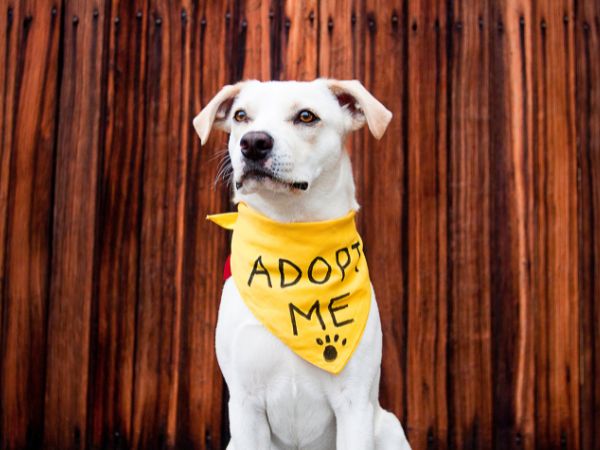10 Dog Adoption Tips: Advice From a Vet
You are thinking about adopting a pet dog? These 10 tips are vet-certified for dog adoption!
1. Expect the adoption process will take time
It is not a good idea to buy a dog on impulse. The dog will be a part of your life for the next ten, so it is crucial to start a relationship with the animal right away. The perfect dog may be available for rescue if you are lucky. However, it’s not uncommon for the search to take some time. Consider what your’must has’ and ‘nice to-haves are in order to help you find the right match. A particular breed may be a good choice, but the dog’s size and ability to get along with other dogs or children might be a must. It will make it easier to find the right match if you let go of your preconceptions regarding breeds or colours and focus more on personality.
2. You are having difficulty finding a dog you can adopt? Look into a rescue organization or breed rescue.
You can easily search for rescue dogs by visiting large rescues. Support is also needed for smaller rescues who can’t afford large websites. You can almost always find a rescue that is specialized in your breed. Most of them have a Facebook Page, if they don’t already have one. You can also expect smaller rescues to take more time to match you with the perfect dog. They will also consider any extenuating circumstances in their background checks.
3. Be careful before you attempt to rescue someone from overseas
There are many reasons why vets are concerned about rescue dogs imported from abroad. Many dogs are illegally imported without proper documentation and vaccinations, or with fake passports. Others may be bred, often in unsanitary conditions. Because rescue from other countries is very fashionable, it’s possible to import them as’rescues’. Vets are also concerned about the effects of foreign diseases on local pets. Diseases like Distemper, Leishmania and others are now being seen in areas they weren’t previously. The question is whether these dogs are more comfortable in a world that they understand, than in our home with all its rules and expectations. Although that photo of the street dog from Romania or Cyprus might tug at your heart strings a little, it is important to think carefully before you adopt them.
4. You should visit your dog at least twice before bringing them home.
It’s not what a rescue dog needs to be in more pain. Before you bring your dog home, make sure that you can fully commit. You should visit your dog at minimum twice to ensure you have had the chance to get to know them, as well as to bond. The first visit can be made with just one or two people, but the second visit should be with all the dogs and children present in the home so that you can make sure your dog gets along well with the rest of the family. Your new dog will be scared enough on adoption day. It is important that they can recognize the members of the family.
5. Ask for the medical history of your dog
No matter how many days your dog has been at a rescue centre for, they must have a medical history. All rescues vet check dogs at entry. Some dogs may need vaccinations or other preventive medicines. Some dogs may also need to be treated upon their arrival. Ask for a copy your dog’s medical records to see if there are any issues. Keep in mind that pet insurance will not cover pre-existing medical conditions. You should carefully read the history to see if your pet has ever been diagnosed with any illnesses. For information on whether or not these conditions are likely reoccurring and how costly they will be treated, you can speak to the rescue center’s vet. Even if the history isn’t too extensive, keep a copy of it for your records.
6. Talk openly about your dog’s training and behavior needs
Poor training can often lead to poor behaviour. Unfortunately, many dogs who are too boisterous or not properly trained end up abandoning their owners. While it’s important to know what you’re signing up for, don’t let that stop you from learning positive reinforcement techniques. This works with all dogs, even old ones! There are many ways to teach your dog new tricks. You can have an honest and open conversation with the rescue center about your dog’s behavior and training needs. Some dogs have been kennelled for their entire lives, and they may need to be potty trained. Some dogs might be hypersensitive to noises or react negatively with other dogs. These issues are often recognized and dealt with by rescues who can offer advice and guidance on training. A dog behaviourist may also be recommended by rescues to ensure that your new dog receives the support they require.
7. Get your dog to the vet as soon possible
Once you have brought home your puppy, it’s time for them to see a vet. You might want to keep your dog quiet for a while at home depending on their nervousness and whether they’ve been to the rescue centre. You should visit the vet within the first few days to make sure your dog is healthy and happy. The vet will be happy to discuss your ongoing vaccinations, worming schedules and best flea treatments with you. They can also answer questions about behavior, diet, weight management and any other issues you may have. This is a common service offered by many vets.
8. Pet insurance is available even for elderly dogs
The best pet insurance covers unexpected medical costs. There are many options for pet insurance. You should look for one that covers disease for life, and has a limit of at least PS7000+ per year for small dogs, and at most PS12,000+ per year for larger dogs. The cost of medical treatment can quickly escalate with the availability of advanced imaging, such as MRIs, and the rising costs for orthopaedic procedures. Many policies now provide insurance for senior dogs and rescue dogs. More information is available in our article, Pet insurance advice: Five things to consider when looking for the best policy.
9. Dogproof your home
Even though you may not be adopting a tiny puppy, it’s important to dogproof your home. Your new dog is not your friend. You never know what your new dog is going to do. Although you can control these things and your home won’t need to become dog-proofed forever for them, it’s important to be careful until you get to know your new dog. Make sure to take care of the garden too. You don’t want them to get lost and lose their way.
10. Expect too little too quickly
All of us want our new buddy to feel at home and be a part of the family. But it’s important that we understand that every dog is different. Many rescue dogs are untrained, come from unstable homes, or have had poor treatment. Even pets that were loved by their owners will feel uneasy about the changes. You should not show your dog off to everyone as soon as you bring him home. Instead, plan a quiet night in alone with the family. Allow your dog to be free to explore the world around them, without being too demanding.





